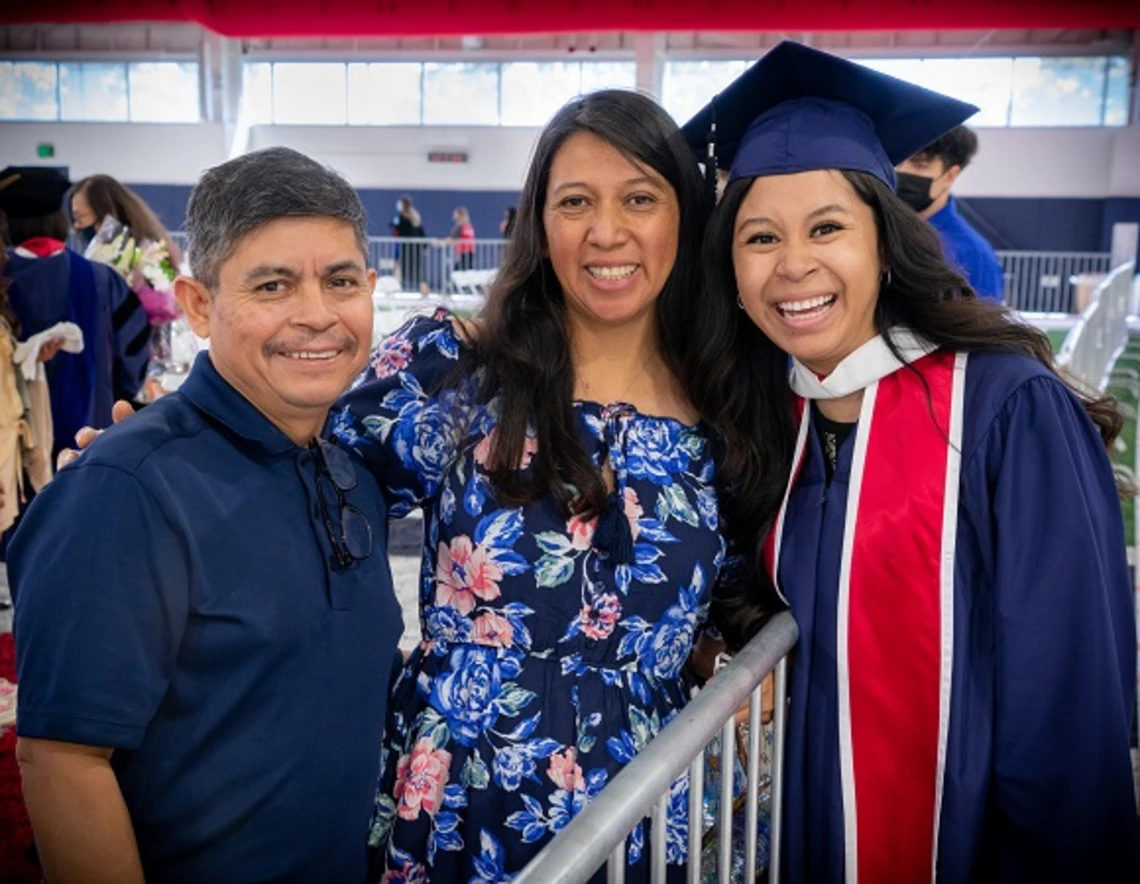HRTS Student Profile: Lucero Gonzaléz Alvarado

"Once I had the opportunity to recognize myself as indigenous, that is when the floodgates fell open. I thought, what does this mean? How do I reflect on this part of myself that I have never fully grasped? Talking with my parents about what history they learned, what was narrated by political propaganda, and clarifying that helped me see history through a different lens. This led to having hard conversations about the past and the family. I don't think I have fully grasped that part of my identity just yet."
Lucero Gonzaléz Alvarado has almost completed her studies for a master's degree in Human Rights Practice. She stands at the threshold of a life-long inquiry into personal identity and politics, contending with her family's ethnic background as Maya Qʼanjobʼal, before and after they emigrated from Guatemala to the United States, even as she engages with a continuing practice of human rights work.
Lucero was born in Phoenix, Arizona. Her parents encouraged Lucero and her younger brother to participate in school activities and excel in educational pursuits. Although they visited family in Guatemala whenever possible, there was little discussion of their family's cultural and ethnic roots. Lucero says, "In order to survive, our goal was to assimilate, our goal was to better ourselves, our goal was to adapt ourselves to a new culture."
Guatemala has a violent colonial history. For centuries, the indigenous Maya, which make up over half the country's population, endured harsh exploitation under Spanish control. A 36-year internal war began in 1960 when leftist rebel groups, supported by indigenous and rural communities, began fighting the oppression of the Guatemalan government. Led by a series of right-wing military dictators, the government forces carried out genocidal massacres, torture, and disappearances of Mayan civilians during the decades of civil war. From 1980 to 1983, under the rule of José Efraín Ríos Montt, an estimated 150,000 people were systematically killed and disappeared. The war finally ended in 1996.
Lucero first began to question her indigenous identity as an undergraduate in Social Work at Arizona State University. Once enrolled in the UArizona's graduate program in Human Rights Practice, Lucero started an ongoing dialogue with her parents about the past and an inquiry into the history of indigenous communities in Guatemala.
During Professor Beverly Seckinger's Human Rights and Documentary Media class, Lucero saw movies by filmmakers from Skylight, Pamela Yates, and Paco de Onís. They are also advisors to our Human Rights and Documentary Media Certificate program. The Skylight trilogy of films about indigenous Guatemalan's struggle for independence and human rights -- When the Mountains Tremble, Granito: How to Nail a Dictator, and 500 Years: Life in Resistance -- offers an experiential look at the country’s history.
As part of the curriculum, Professor Seckinger presents various ways to use documentary media to protect human rights. Lucero is now considering employment as an Impact Producer, an organizer who extends a film's power to instigate social justice.
However, Lucero credits capstone advisor Professor Elisa Marchi for kindling a deeper awareness of colonial rule in the Americas as she presented concepts of decolonization. With Professor Marchi's help. Lucero employed her bilingual skill to translate documents for José Francisco Calí Tzay, a Maya Kaqchikel from Guatemala and the United Nations Special Rapporteur on the rights of indigenous peoples. Lucero is now finishing up her capstone, working with Professor Marchi to complete a report for use in communications to the United Nations.
When Lucero enrolled in Human Rights Practice coursework, she worked full-time as a Customer Service Specialist for Arizona State University, where she had obtained an undergraduate degree in Social Work. Soon after, she began working full-time for UMOM New Day Centers, a Maricopa County non-profit organization dedicated to providing families experiencing homelessness with shelter and resources. Lucero recently left UMOM to devote herself to a Foreign Language and Area Studies Fellowship studying the indigenous language Kaqchikel of Guatemala.
Asked about her future goals, Lucero says, "I am not sure, but I want to steward the gifts and tools that I have well, to partner and work with communities. If I can be a leader, it is not about me. It is about the people.” Lucero wants to advocate for human rights defenders and organizations. She says, “I have seen human rights organizations with great stories and work, but they are not marketed well. How can I further their work?”

